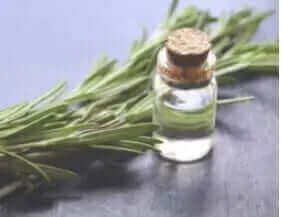Rosemary Hair Growth: Revolutionary Study Reveals Natural Solution for Hair Loss
Breakthrough research on rosemary has unveiled promising results for those struggling with hair loss. A groundbreaking study published in the prestigious Phytotherapy Research Journal on April 20th demonstrates how this aromatic herb could transform the way we approach natural hair regrowth. For millions experiencing testosterone-induced hair loss, this discovery offers renewed hope and a potential path to fuller, healthier hair.
Understanding the Science Behind Rosemary and Hair Growth
The power of rosemary (Rosmarinus officinalis) extends far beyond its culinary uses. Japanese researchers have uncovered compelling evidence that this Mediterranean herb possesses remarkable properties for combating androgenic alopecia, the most common form of hair loss affecting both men and women. This condition, driven by testosterone and its derivative dihydrotestosterone (DHT), has long challenged those seeking natural solutions.
What makes this research particularly exciting is its focus on how rosemary extract interacts with our body's hormonal processes. The study reveals that topical application of rosemary can potentially interrupt the cascade of events that leads to hair follicle miniaturization and eventual hair loss.
The Groundbreaking Rosemary Hair Growth Study
In this meticulously designed experiment, researchers administered testosterone treatments to test subjects to simulate the conditions of androgenic alopecia. This approach allowed them to observe how rosemary extract could counteract hormone-induced hair loss in real-time.
The study protocol involved applying approximately 2mg of rosemary extract daily to each test subject. This modest dosage yielded remarkable results, demonstrating improved hair regrowth not only in areas affected by testosterone interruption but also in dorsal shaved regions. These findings suggest that rosemary's benefits extend beyond preventing hair loss to actively promoting new hair growth.
Key Findings That Inspire Hope
- Rosemary extract showed significant effectiveness in reversing testosterone-induced hair loss
- Hair regrowth occurred in both hormone-affected and mechanically shaved areas
- The treatment required only minimal daily application (2mg per subject)
- Results suggest a natural alternative to conventional hair loss treatments
How Rosemary Works to Promote Hair Growth
The mechanism behind rosemary's hair growth properties centers on its ability to inhibit the binding of dihydrotestosterone (DHT) to androgen receptors. This action is crucial because DHT attachment to hair follicle receptors triggers the miniaturization process that leads to hair loss.
By blocking this interaction, rosemary extract essentially shields hair follicles from hormonal damage. This protective effect allows follicles to maintain their normal growth cycle and produce healthy, robust hair strands. The researchers noted that this mechanism positions rosemary as a "promising crude drug for hair growth," highlighting its potential for future therapeutic applications.
The Natural Advantage of Rosemary
Unlike synthetic hair loss treatments that often come with unwanted side effects, rosemary offers a gentle, plant-based approach. This herb has been safely used for centuries in various applications, from cooking to traditional medicine. Its established safety profile makes it an attractive option for those seeking natural solutions to hair loss.
The aromatic compounds in rosemary, including rosmarinic acid, carnosic acid, and camphor, contribute not only to its distinctive scent but also to its therapeutic properties. These bioactive components work synergistically to create an environment conducive to healthy hair growth.
Practical Applications: Using Rosemary for Hair Health
While the study focused on concentrated rosemary extract, there are several ways to incorporate this beneficial herb into your hair care routine:
Rosemary Oil Scalp Massage
- Dilute pure rosemary essential oil with a carrier oil (coconut, jojoba, or argan)
- Apply the mixture to your scalp using gentle circular motions
- Leave on for at least 30 minutes before washing
- Repeat 2-3 times weekly for optimal results
Rosemary Hair Rinse
- Steep fresh or dried rosemary in boiling water for 30 minutes
- Strain and allow the infusion to cool
- Use as a final rinse after shampooing
- This method helps stimulate circulation and adds shine to hair
DIY Rosemary Hair Mask
Create a nourishing hair mask by combining rosemary oil with other beneficial ingredients like honey, egg yolk, or avocado. This treatment provides deep conditioning while delivering rosemary's growth-promoting compounds directly to your scalp and hair.
Beyond Hair Growth: Additional Benefits of Rosemary
The advantages of incorporating rosemary into your hair care routine extend beyond promoting growth. This versatile herb offers multiple benefits for overall hair and scalp health:
- Improved Circulation: Rosemary stimulates blood flow to the scalp, ensuring hair follicles receive adequate nutrients
- Dandruff Control: Its antimicrobial properties help combat scalp conditions that can impede hair growth
- Strengthened Hair Shaft: Regular use of rosemary can improve hair texture and reduce breakage
- Natural Shine: The herb's compounds help smooth the hair cuticle, resulting in lustrous locks
- Stress Reduction: The calming scent of rosemary can help reduce stress, a known contributor to hair loss
Comparing Rosemary to Conventional Hair Loss Treatments
Traditional hair loss treatments often come with significant drawbacks. Medications like finasteride and minoxidil, while effective for some, can cause side effects ranging from scalp irritation to more serious systemic issues. Rosemary presents a compelling alternative with its favorable safety profile and multi-faceted approach to hair health.
The natural compounds in rosemary work harmoniously with your body's systems rather than forcing artificial changes. This gentler approach may take longer to show results but offers sustainable benefits without the risk of dependency or adverse reactions commonly associated with pharmaceutical options.
Future Research and Possibilities
While the current study provides encouraging evidence for rosemary's hair growth potential, researchers acknowledge the need for human trials. The transition from laboratory studies to clinical applications represents the next crucial step in establishing rosemary as a mainstream hair loss treatment.
Future research may explore optimal dosages, delivery methods, and combinations with other natural ingredients to maximize effectiveness. The possibility of developing standardized rosemary formulations specifically designed for hair growth presents an exciting frontier in natural hair care.
Embracing Natural Solutions with Rosemary
The journey to healthier, fuller hair doesn't have to involve harsh chemicals or expensive procedures. Rosemary offers a time-tested, scientifically-backed option that aligns with the growing preference for natural wellness solutions. By understanding and utilizing the power of this remarkable herb, individuals can take proactive steps toward addressing hair loss concerns.
Whether you're experiencing early signs of thinning or seeking preventive measures, incorporating rosemary into your hair care routine represents a positive step forward. The combination of traditional wisdom and modern scientific validation makes this herb a compelling choice for anyone interested in natural hair health solutions.
Taking Action: Your Rosemary Hair Growth Journey
Starting your rosemary hair growth journey requires consistency and patience. Begin with simple applications like scalp massages or hair rinses, gradually increasing frequency as you observe your hair's response. Document your progress through photos and notes to track improvements over time.
Remember that hair growth is a gradual process, typically requiring several months to show significant changes. The key lies in maintaining regular use while supporting your efforts with a healthy diet, adequate hydration, and stress management practices.
Frequently Asked Questions About Rosemary for Hair Growth
How long does it take to see results from using rosemary for hair growth?
Most people begin noticing improvements in hair thickness and reduced shedding after 6-8 weeks of consistent rosemary use. Significant new growth typically becomes visible after 3-4 months. Individual results vary based on the severity of hair loss, overall health, and consistency of application. Patience and regular use are key to achieving optimal results with this natural remedy.
Can rosemary essential oil be applied directly to the scalp?
Pure rosemary essential oil should always be diluted before applying to the scalp. Mix 2-3 drops of rosemary oil with 1 tablespoon of carrier oil like coconut, jojoba, or olive oil. Direct application of undiluted essential oil can cause irritation, burning, or allergic reactions. This dilution ensures you receive the benefits while protecting your skin.
Is rosemary effective for all types of hair loss?
Rosemary shows particular promise for androgenic alopecia (hormone-related hair loss) based on the research. It may also help with hair loss due to poor circulation, stress, or nutritional deficiencies. However, hair loss caused by autoimmune conditions, chemotherapy, or severe medical issues may require different approaches. Consulting with a healthcare provider helps determine if rosemary suits your specific situation.
Can I use rosemary if I have sensitive skin?
People with sensitive skin can often use rosemary successfully by starting with very diluted preparations. Begin with a patch test on a small area of skin. If no irritation occurs after 24 hours, proceed with a gentle rosemary tea rinse or highly diluted oil treatment. Some individuals find fresh rosemary infusions gentler than essential oil preparations.
How does rosemary compare to minoxidil for hair growth?
While minoxidil has extensive clinical backing, rosemary offers a natural alternative with fewer side effects. Some studies suggest rosemary oil can be as effective as 2% minoxidil. Rosemary works by different mechanisms, including DHT blocking and circulation improvement, while minoxidil primarily increases blood flow. Many people successfully combine both treatments for enhanced results.
Can pregnant or nursing women use rosemary for hair growth?
Pregnant and nursing women should exercise caution with rosemary essential oil, as high concentrations may affect hormone levels. However, mild rosemary tea rinses or cooking with fresh rosemary are generally considered safe. Always consult your healthcare provider before adding any new treatments during pregnancy or while breastfeeding to ensure safety for both mother and baby.
What's the best way to store rosemary products for hair care?
Store rosemary essential oil in dark glass bottles away from direct sunlight and heat. Fresh rosemary can be kept in the refrigerator for up to two weeks or frozen for longer storage. Homemade rosemary infusions should be used within one week if refrigerated. Proper storage maintains the potency of active compounds essential for hair growth benefits.
Can men and women both benefit from rosemary hair treatments?
Absolutely! Rosemary hair treatments benefit both men and women experiencing hair loss or seeking healthier hair. Since the herb works by blocking DHT and improving scalp circulation, it addresses common causes of hair loss in both genders. The natural approach of rosemary makes it suitable for anyone looking to improve their hair health naturally.
Are there any side effects of using rosemary for hair growth?
When used properly, rosemary rarely causes side effects. Some people may experience mild scalp irritation, especially with concentrated essential oil. Allergic reactions are uncommon but possible. Starting with diluted preparations and gradually increasing strength helps minimize any potential issues. Discontinue use if you experience persistent irritation, redness, or unusual symptoms.
Can I grow my own rosemary for hair treatments?
Growing your own rosemary provides a fresh, cost-effective supply for hair treatments. This hardy herb thrives in sunny locations with well-drained soil. Container growing works well for those with limited space. Harvest sprigs as needed for infusions, ensuring you have organic, pesticide-free rosemary for your hair care routine. Fresh rosemary often provides gentler treatments than concentrated oils.
Conclusion: The Promise of Rosemary for Hair Growth
The scientific validation of rosemary's hair growth properties marks an exciting development in natural hair care. This research opens doors for those seeking effective, gentle solutions to hair loss concerns. By combining traditional herbal wisdom with modern scientific understanding, we can approach hair health with renewed optimism and practical strategies.
As you embark on your rosemary hair growth journey, remember that consistency, patience, and a holistic approach to hair health will yield the best results. The future looks bright for natural hair care solutions, with rosemary leading the way as a scientifically-backed, accessible option for promoting healthy, vibrant hair growth.
References:






